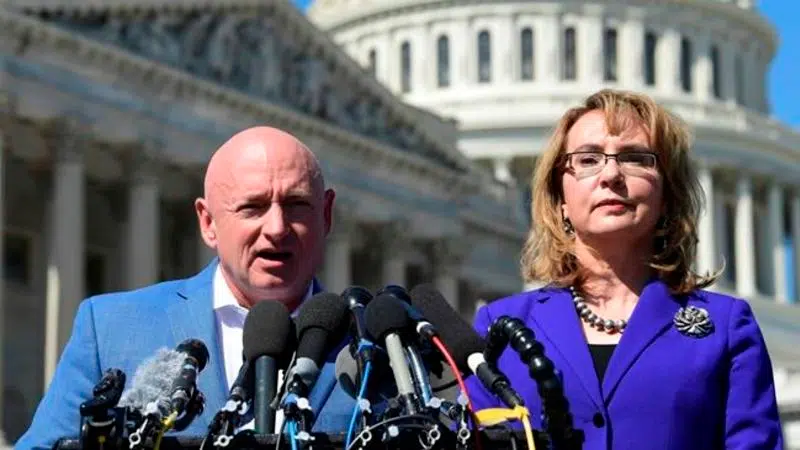
Ex-astronaut Mark Kelly makes Democratic bid for Senate seat
PHOENIX — Retired astronaut Mark Kelly, who became a prominent gun-control advocate after his wife and former U.S. Rep. Gabrielle Giffords was shot in a failed assassination attempt, announced Tuesday he will run to finish John McCain’s last term in the U.S. Senate.
If he wins the Democratic nomination, Kelly would take on Republican Martha McSally in what is expected to be one of the most closely contested Senate races of the 2020 election.
Kelly described himself as an independent-minded centrist who will take a scientist’s data-driven approach to solving problems such as climate change, wage stagnation and health care affordability.



